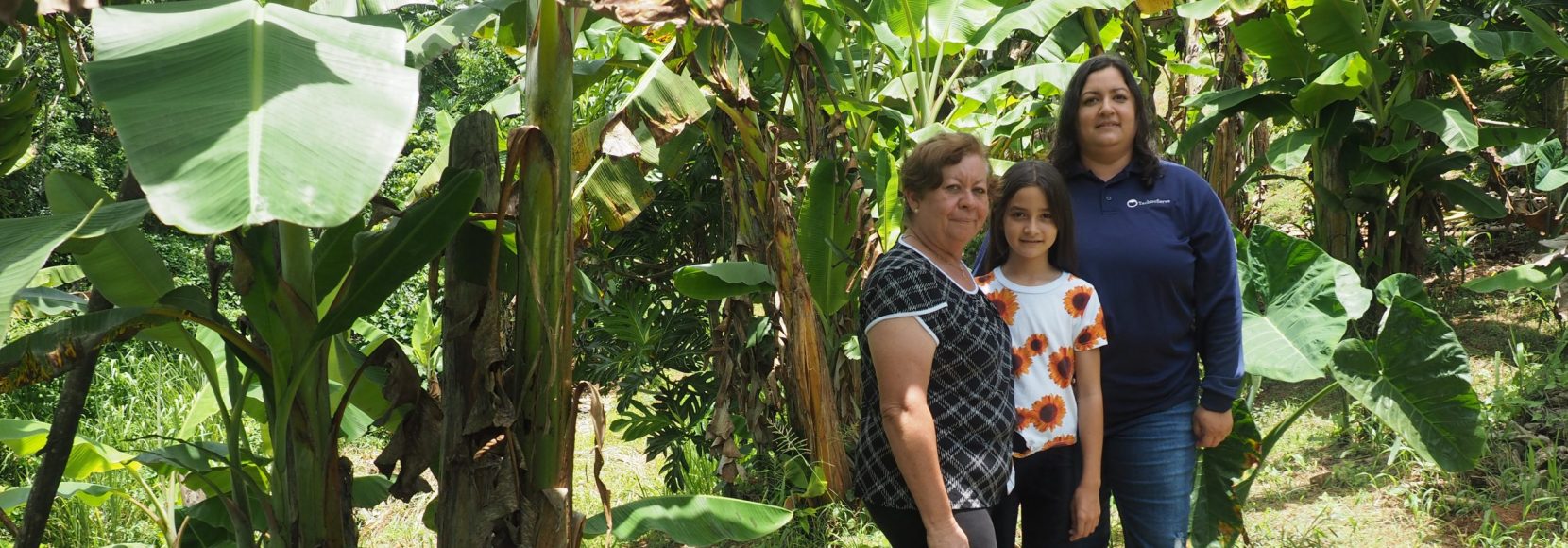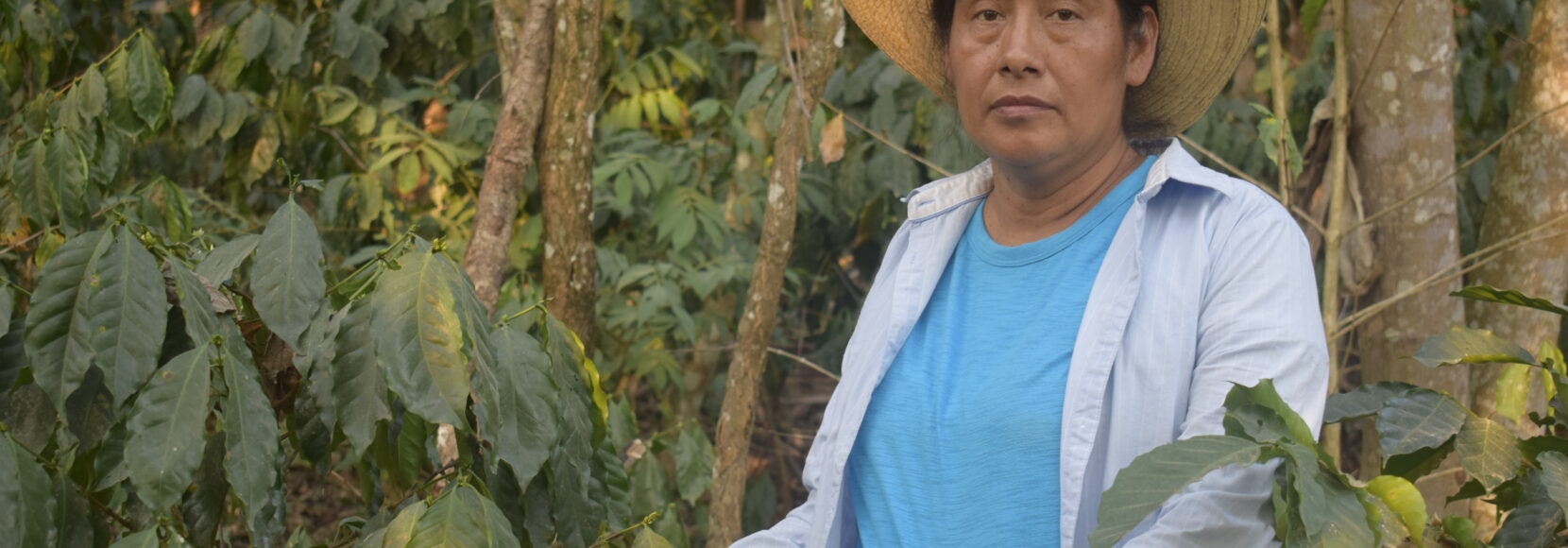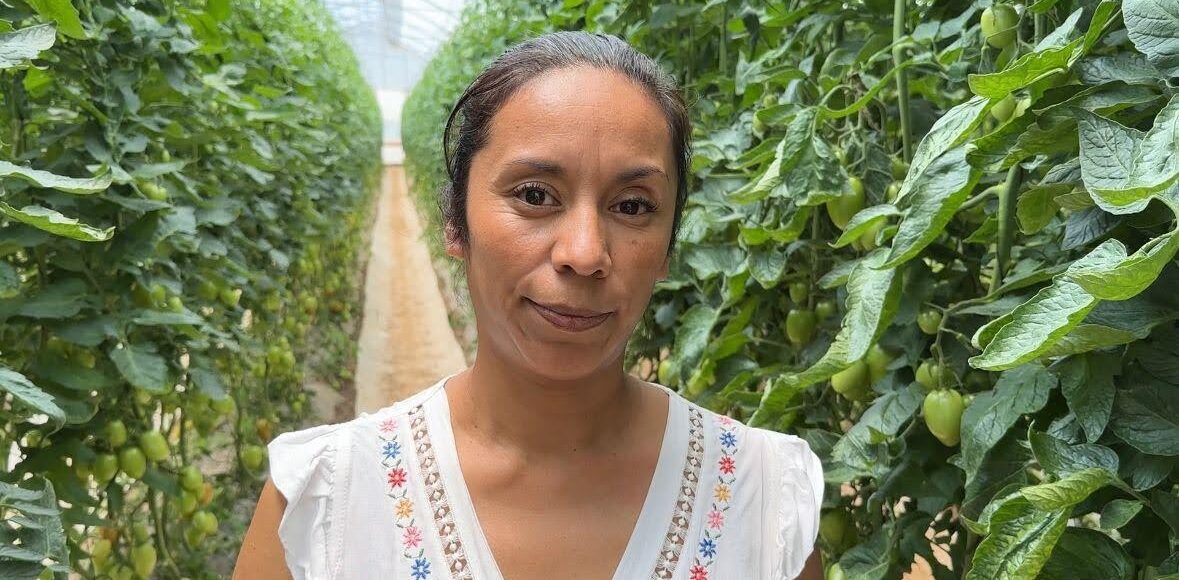
A TechnoServe Trainer and Daughter of Farmers Helps Build the Future of Puerto Rico’s Coffee Industry
How one daughter of coffee farmers is now supporting the coffee industry in Puerto Rico as a TechnoServe trainer.
Zuleyka Lugo-Ortiz gazes at the farm behind her mother’s house in Lares, Puerto Rico, watching peacocks roam before her and listening to roosters crow in the distance. It’s a hot afternoon, but that doesn’t keep her from donning her navy blue long sleeve shirt with TechnoServe’s white logo in the corner. The logo’s circular shape in this case represents the full circle that has come about in her own life.
Zuleyka is the fourth generation of a family of farmers in Puerto Rico. While farming was something she had always loved, her mother, Agueda, knew how difficult a field it was – especially for women. “Women have a lot more challenges than men within the farming community,” says Agueda. “First, we are not seen in a positive light, my generation suffered through a lot of difficulty within agriculture because it is seen as a business for men, manly work, especially in the campo.”
Agueda has been a farmer for 30 years and is a part of the third generation of farming in her family. “It was a big challenge for me. It has changed today, and women who work in agriculture are seen differently. It was not like this in my time. There were very few women who worked in agriculture and this caused many challenges; we were not paid equally, not valued for our work, and this made it very difficult.”
Her daughter, Zuleyka, later studied industrial microbiology at the University of Puerto Rico, Mayagüez Campus. However, after taking a few nursing courses and working at a nursing home, she decided to study nursing while continuing her studies in microbiology. At the same time she applied to a private university, so that she could pursue a career that would allow her to take care of the eldery. Later, she had her daughter Zullybeth Martinez-Lugo.
“My priority was to take care of and raise my child. I tried to look for a job that allowed me to do that and have an income,” says Zuleyka. “For us, the women, it’s important to be economically empowered.”
How Hurricane Maria Affected the Coffee Industry
In the devastating wake of Hurricane Maria in 2017, Puerto Rico lost an estimated 80% of its coffee trees, crippling an important sector of its economy. “Everything was just gone,” says Zuleyka. “It was pretty hard.”
While challenged by the hurricane, she also felt that it presented her and her family with an opportunity. “I got the opportunity to be back at home at the farm; to start again,” says Zuleyka. “I know it was pretty hard for my mom because the first hurricane that devastated the farm was Hurricane George [in 1998], and the farm was never the same. I told her, ‘It’s time to do things better than before. And now maybe you can accept that I like farming. I want to work with the land.’ And that’s where everything started again with TechnoServe.”
Today, Zuleyka is a farmer trainer for TechnoServe in Puerto Rico. “The same that I want for myself is the same that I want for other people: a better way of life,” she says. “I know that most people are waiting for opportunities to appear, but no. We need to change our minds and make opportunities on our own.”
How Coffee Farmers are Doing After Hurricane Maria
Working with local and international partners across sectors, TechnoServe is helping rebuild Puerto Rico’s coffee industry with trainers like Zuleyka. She and her colleagues work with hundreds of smallholder coffee farmers to significantly increase their yields and help them access better farming supplies, financing, and markets. Through these efforts, coffee farmers will be able to substantially improve their incomes, and help lead Puerto Rico forward into a more hopeful future.
That future includes girls like Zuleyka’s 9-year-old daughter. As Zuleyka takes a rest outside her mother’s house, her daughter and mother chat together inside–three generations of women on the land that continues to sustain their family.
“It’s very important for me to show my own child that life is hard. It’s not always a rainbow,” says Zuleyka. “Sometimes things don’t go the way you want them to, but that doesn’t mean it’s bad. There’s many ways to reach a goal.”





